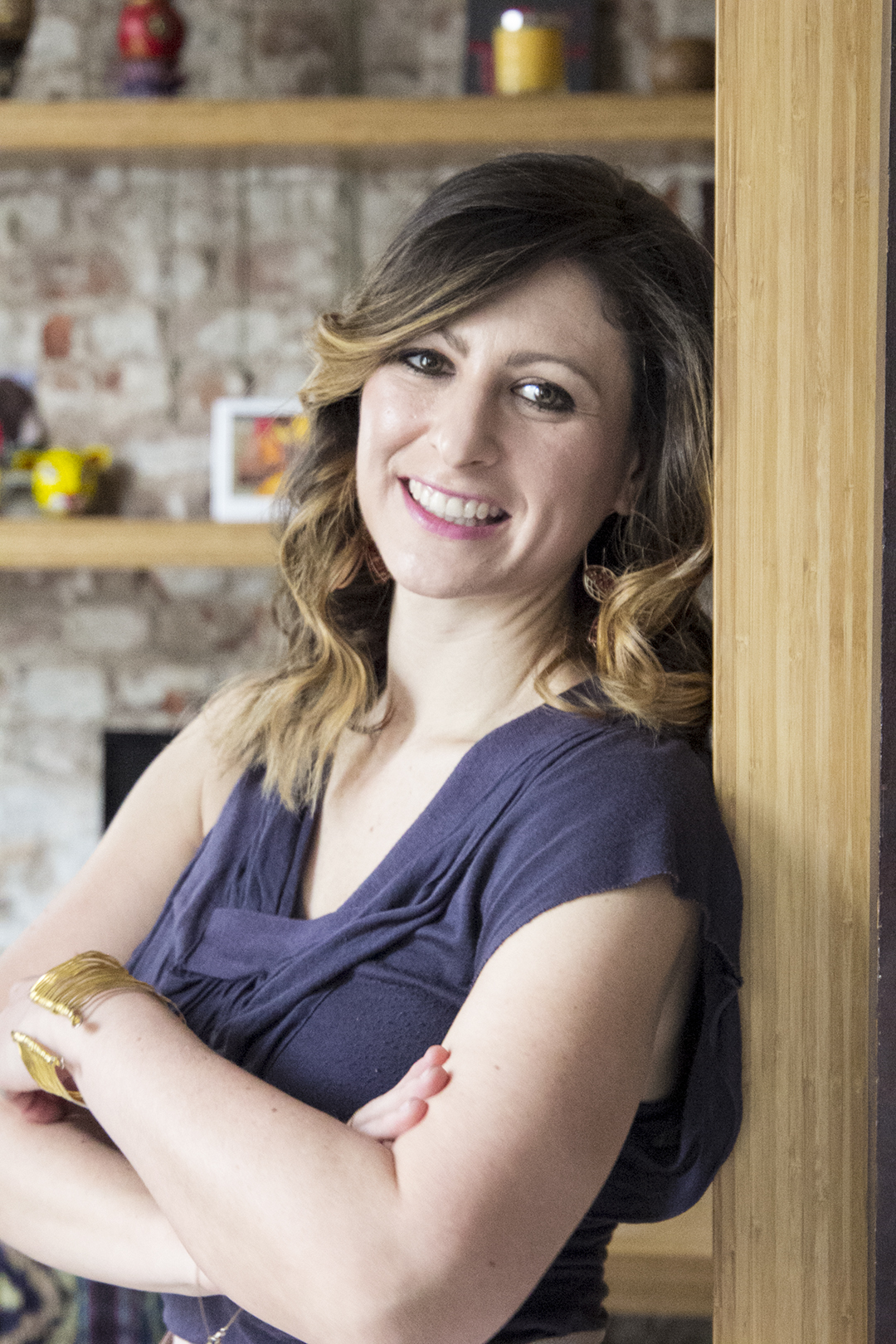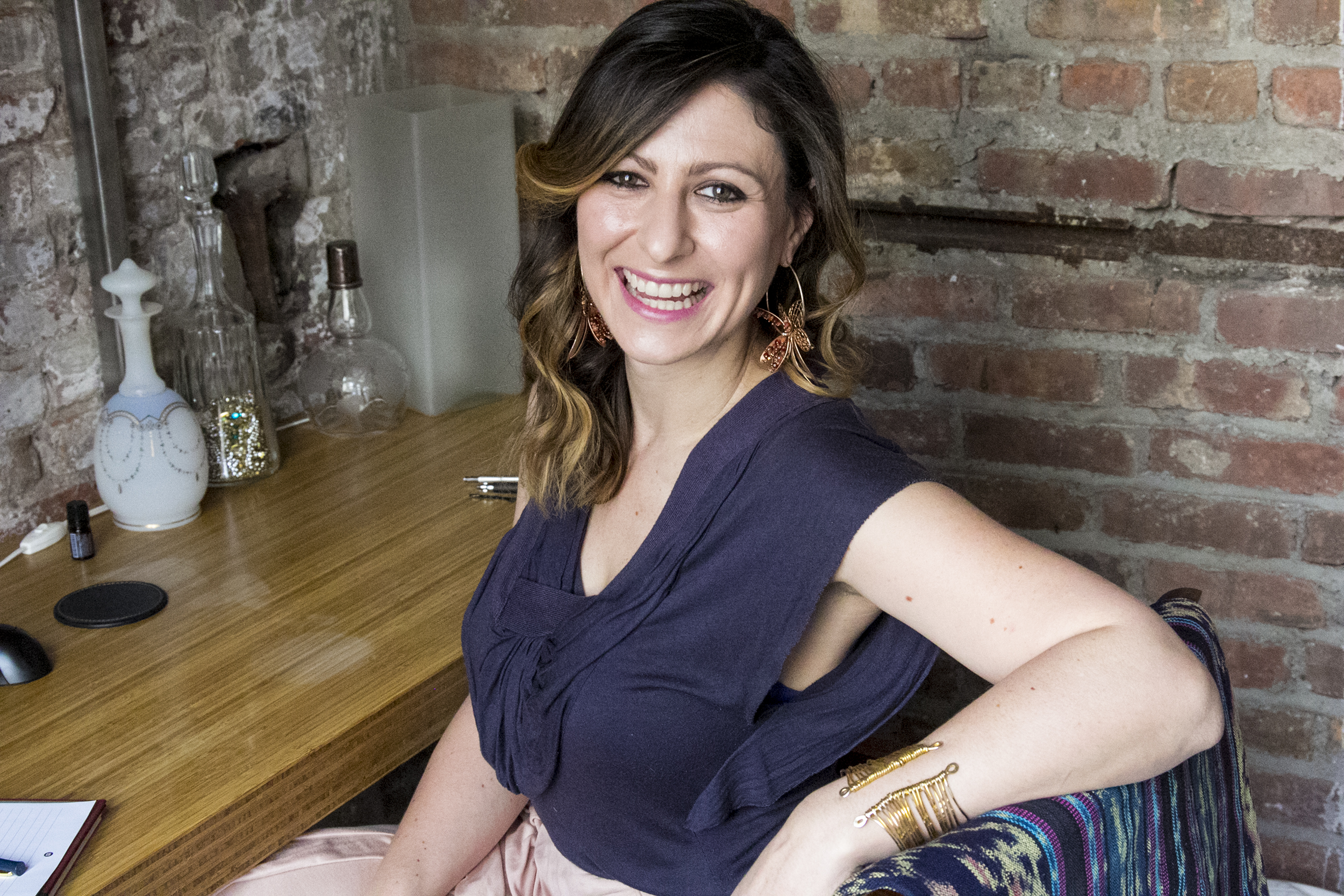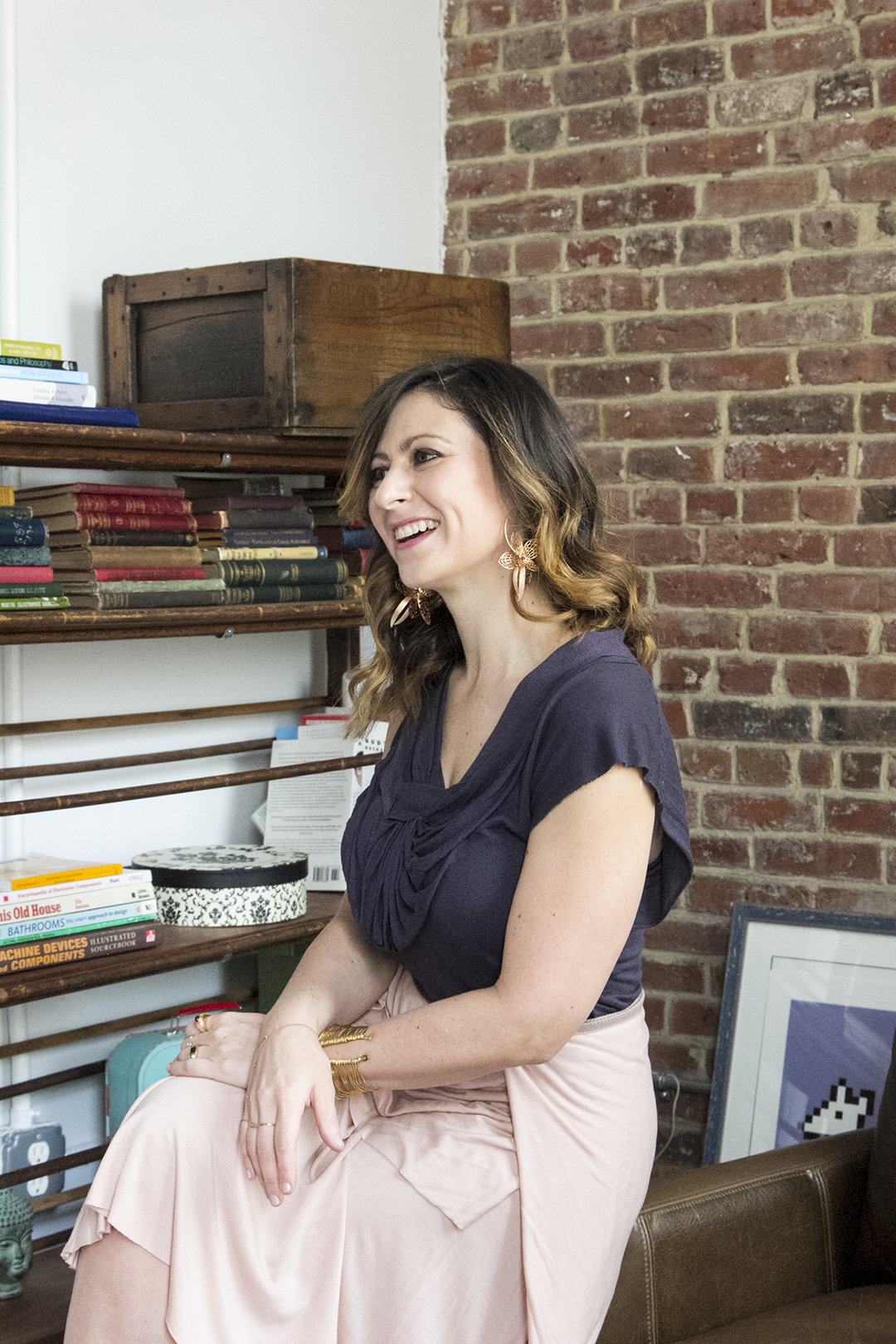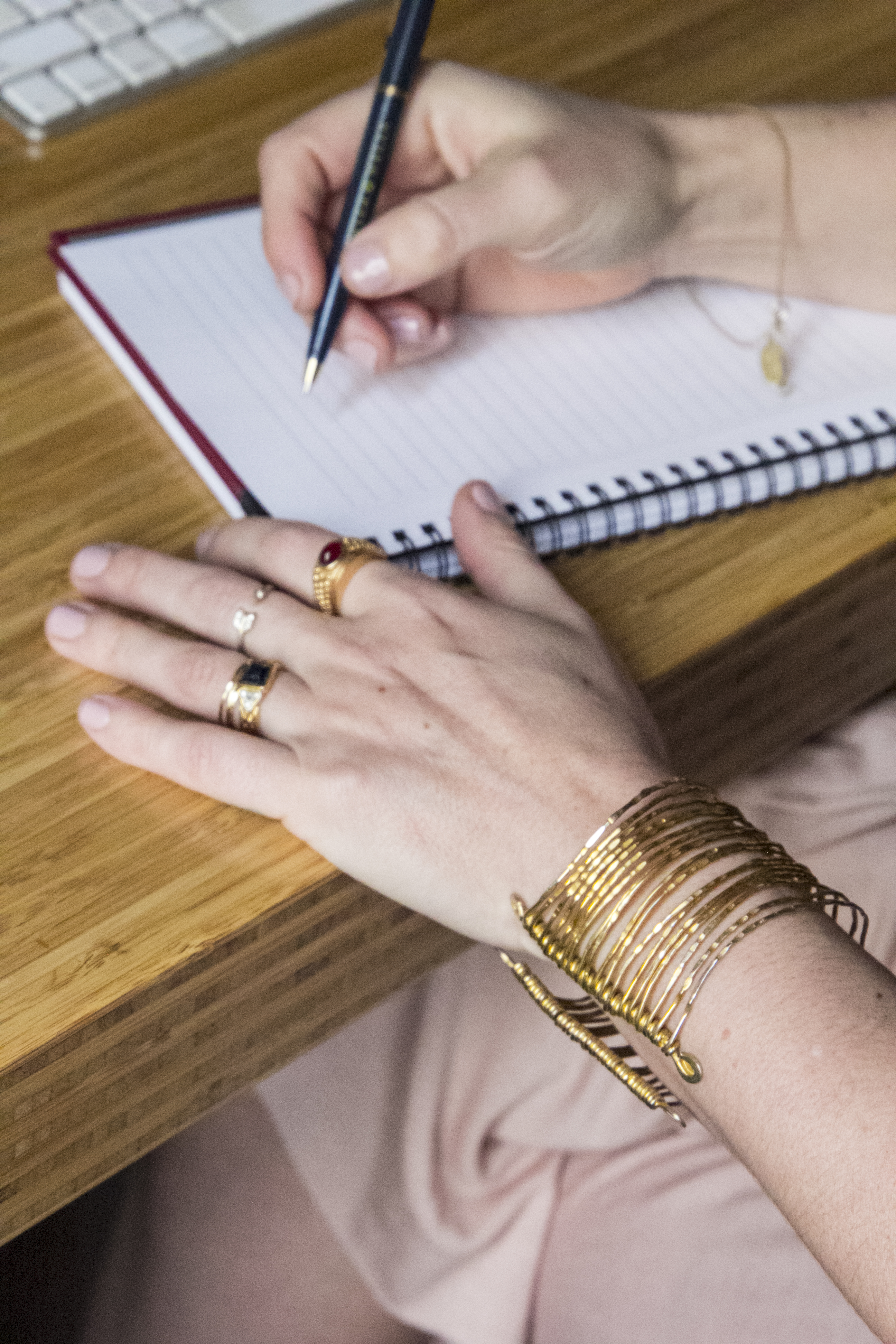If you’re looking for a holiday to regroup and recharge, Linden Schaffer is the woman people call. We’ve all had that experience where you get home from a holiday, only to feel like you need another trip to recover from the first one and that’s where wellness travel comes in. Gone are the disorganised, overscheduled itineraries. Through her company Pravassa, Linden offers everything from mindfulness and meditation getaways in Vietnam to trips to Japan to study the art of Zen from people in the know that you’d never be able to track down on your own. See sees herself as someone who not only books travel for you, but also offers you a way to transform your lifestyle through and unforgettable experience.
She started Pravassa in 2009 after a successful but stressful career in fashion, realising that there were people out there, just like her, who wanted to renew their energy away from the thick of it all, to bring home what they learned. The rest is history. Here is her story of making the transition – and thriving – in an industry she’d never worked in before without compromising self-care in the process.
 HER WEDDING WAS THE LIGHTBULB MOMENT FOR THE CONCEPT: I was working in fashion at the time but the idea was the coming together of all my personal loves – what I was doing outside of my career like traveling and doing yoga, working out, learning to eat better and cook more, those kinds of things. I was ready to leave fashion. The last job I had in fashion was my one foot out of the industry if you will. I knew I wanted to leave but I hadn’t figured out what my next move would be. Ever since I was a kid all I ever wanted was to work in the fashion industry. When I knew I had to leave I was like, “now what?” because never in my life had I thought of anything else. During that transition period, I got married in Argentina, where my husband is from. We had been together for a long time – around 8 or 9 years at that point – so it was just a big party. There was nothing formal about any of it. We decided to have it at a place outside of Buenos Aires. It used to be a horse farm that was turned into a hotel so the horse stables became the bedrooms and it was run as an organic farm. It just totally fit in to how I like to travel and what I like to do. 40 people came from the US for the wedding and I knew I couldn’t bring them there and not show them what is so amazing about Argentina so I planned a four-day celebration to introduce them to everything. We really introduced them to Argentina – we went to local restaurants, we did city tours, we did some tango related stuff, everything that would introduce them to the culture and why it was special to the both of us. Without knowing, that became the blueprint for Pravassa. I had no idea, I was just planning a party, a vacation that I wanted to do and it just turned out that everybody had the best time. Even to this day I have friends and family that talk about it and they don’t talk about it so much as a wedding, the wedding was great but everybody talks about everything, the experience of it and feeling connected to the culture. It was just a different way to travel and something they experienced with us that they wouldn’t have if they had just gone to Argentina on their own. That made me confident about the way people were looking to travel.
HER WEDDING WAS THE LIGHTBULB MOMENT FOR THE CONCEPT: I was working in fashion at the time but the idea was the coming together of all my personal loves – what I was doing outside of my career like traveling and doing yoga, working out, learning to eat better and cook more, those kinds of things. I was ready to leave fashion. The last job I had in fashion was my one foot out of the industry if you will. I knew I wanted to leave but I hadn’t figured out what my next move would be. Ever since I was a kid all I ever wanted was to work in the fashion industry. When I knew I had to leave I was like, “now what?” because never in my life had I thought of anything else. During that transition period, I got married in Argentina, where my husband is from. We had been together for a long time – around 8 or 9 years at that point – so it was just a big party. There was nothing formal about any of it. We decided to have it at a place outside of Buenos Aires. It used to be a horse farm that was turned into a hotel so the horse stables became the bedrooms and it was run as an organic farm. It just totally fit in to how I like to travel and what I like to do. 40 people came from the US for the wedding and I knew I couldn’t bring them there and not show them what is so amazing about Argentina so I planned a four-day celebration to introduce them to everything. We really introduced them to Argentina – we went to local restaurants, we did city tours, we did some tango related stuff, everything that would introduce them to the culture and why it was special to the both of us. Without knowing, that became the blueprint for Pravassa. I had no idea, I was just planning a party, a vacation that I wanted to do and it just turned out that everybody had the best time. Even to this day I have friends and family that talk about it and they don’t talk about it so much as a wedding, the wedding was great but everybody talks about everything, the experience of it and feeling connected to the culture. It was just a different way to travel and something they experienced with us that they wouldn’t have if they had just gone to Argentina on their own. That made me confident about the way people were looking to travel.
ON WHAT MADE HER CONFIDENT TO TAKE THE LEAP: In 2008 when the market collapsed I was selling luxury goods and my market primarily was big department stores in bigger cities, and the reality was that the customer who was buying the product, they weren’t in trouble per say, they still had money but they weren’t buying things anymore. They wanted experiences. That was one of the things that made me confident that there was something to look at there. Six months after the wedding I was on holiday with a friend in Egypt and we were chatting about where my life is going, what am I doing and I came up with the Pravassa idea. I had all of these things hitting me at once saying maybe there is something here, maybe there is a way to make this into something that I can give people.
THE TRANSITION PROCESS: I’m very organised, very type A. I’m interested in taking risks but the idea of failure can be scary. Having nothing in New York is tough. I’ve lived here pay check to pay check and I didn’t want to go back to that so I decided that I would keep my full-time job and keep a pay check and do Pravassa on nights and weekends. After about four months of doing that I realised it wasn’t working – my nights and weekends started to disappear. I was doing well in my paying job and traveling two weeks at a time with no comp time off so I couldn’t sustain both. It got to my breaking point when I was in a hotel room in Italy for work on the phone with my mother. This was back in 2009, before FaceTime and WhatsApp, so it was a very expensive phone call. I was telling her that I couldn’t do my job any more. That I was so stressed and couldn’t focus. My mom said to me, “what is the worst that can happen if you quit your job? You can always get another job again.” That was the first time someone else had given me permission to fail, or to try or to succeed so I came home and I said to my husband, “if I quit my job and I don’t have a pay check coming in, and I’m going to use my entire life savings to finance this business idea, what do you think?” He said the same thing as my mom. He told me to try it for a year and see what happens. Without those things, I don’t know if I would have had the courage.
ON STARTING A BUSINESS IN AN AREA SHE’D NEVER WORKED IN BEFORE: It was challenging, even now it’s challenging, I don’t think that goes away, when you are running your own business, when you are creating and pioneering a category that didn’t really have a name, or didn’t really exist, or people thought was strange, or didn’t understand it. Having drive and passion was super important. I’ll never forget in the first few months of running the business full time, I was trying to meet as many people in the health and wellness industry. I took a step back and said to some of my girlfriends who worked in fashion with me throughout the years that everyone in the wellness industry are just so nice. Honestly, everyone wants to help you, which was the complete opposite of the fashion industry. It’s interesting because I worked with many emerging designers in my old work we would tell them to make their mistakes on someone else’s dime; go work for a GAP or one of the big companies; soak up as much knowledge as you can before you go out and start your own thing. I still to this day believe in that advice, whether it’s an internship or freelance or something. That’s not how it happened for me. If I could change it, would I? I don’t know. I think there’s an advantage in not knowing anything about the industry that you are going into, because it’s easy to disrupt it.
HOW SHE’S DEALING WITH THE RISE IN COMPETITORS IN THE SECTOR SHE PIONEERED: I think competition is always good. I think it drives you to be innovative and if you didn’t have competition, how would you know if you were doing something badly or that needed to improve. Competition helps push things forward. I’m very friendly with some of the people who are in the same space as me and I think that’s also a testament to the wellness business. It’s not like we are sharing trade secrets but we are super friendly with each other. If somebody needed something, we are all there to support, which is nice. I had the amazing opportunity to sort of create my own space. I was doing wellness travel for probably five years before it became a category for travel. If you Googled wellness travel, Pravassa was top, and we still own that space because we have been doing it for so long.
WHAT YOU GET BOOKING THROUGH PRAVASSA THAT YOU COULDN’T GET ON YOUR OWN: We research everything we do, which is why we only take clients to certain places in the world. It takes us about a year to start operating in a country and that means I’m there on the ground, I’m meeting with people, I’m staying in hotels and forming relationships. Those relationships are what sets us apart. Whether we are going to Bali and being invited by the village priest to do a blessing in the temple, these are relationships that I’ve cultivated that you can’t find anywhere else.
THE SHIFT IN THE CULTURAL CONVERSATION AROUND WELLNESS: In the first few years of the business, I would probably spend an hour on the phone with people explaining what Pravassa was and what we did. I would get crazy weird questions like, ‘do you only serve raw vegetable on your trips?’ or ‘am I going to be up at 4am meditating.’ I totally understood why people asked questions like that back then. It wasn’t spoken about as much as it is now and that was people’s perceptions of wellness travel prior to our launch. Now I don’t even have to have those conversations – people are calling me with very specific questions because they already have their own health care, self-care and wellness routines.
HOW TO KEEP THE ZEN VIBES AFTER YOUR TRIP: I think the first thing that’s important for people to remember is that it’s a practice – it’s not something that you are going to wake up tomorrow and have a complete transformation. It’s something that you must dedicate time to. I’m on a wellness journey and I’ll continue to be on a wellness journey and that is something that is important for people to remember. Through different stages of your life and even different stages of your day, you need different things. It takes time to develop that intuition and the ability to listen to your body. It doesn’t always come naturally. You don’t come home from an amazing trip and all of a sudden your life is going to change. It’s all about starting small and seeing it through.
HER SELF-CARE JOURNEY: My routine is always changing and it will continue to change but for me there’s things that are non-negotiable and sleep is one of them. I know I don’t function well or intelligently when I’m not sleeping and I make mistakes or get stressed because of it. I sleep a minimum sleep of seven hours every night. Working out for me is something that I need as a de-stressor. It’s where I go to clear my head, as much as I’m not working when I work out, because it’s a meditation practice in a way for me, new ideas pop up out of nowhere when I work out. I put all of these as an appointment in my calendar. I literally block out time for self-care.
ON JUGGLING DOING THE DAY-TO-DAY WORK WITH PLANNING WHAT’S NEXT: It’s something I’m always working on. For a long time I didn’t have an assistant, I was doing everything myself and I realised that I wasn’t going to grow if I didn’t have help. I found some amazing interns – people who were willing to work for the experience and for a very small thank you, which helped me grow. I went from interns to having an assistant, to having some other amazing women who help me and work with me on trips. It’s given me the opportunity to really be an entrepreneur; to block out time to read business articles, to listen to podcasts and step away from it so I can expand my mind and expand my horizons too.






Amazing article from an amazing woman.
I couldn’t have made it through some very tough times , medically if I hadn’t had my yoga and the space on my mat .
That keeps me away from the “fast and noisy world we live in”
Thank you to woman like Linden who understands …your body will cooperate with your mind which has much power. Be present
In the world through taking care of yourself.